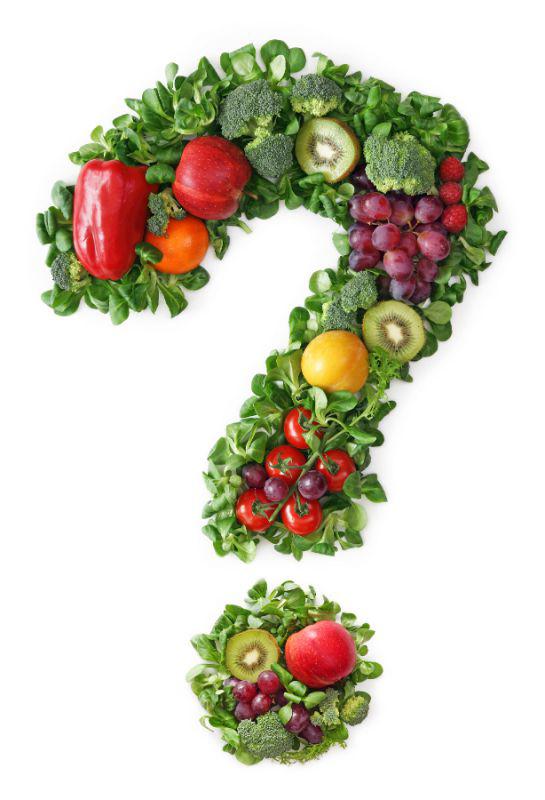 Which diet is best for your health?
Which diet is best for your health?
Here at Real Foods we field a LOT of questions about diet. There have been a wide range of queries about (amongst others) the 5:2 diet, Atkins, Low-Carb, The South Beach Diet, Paleo, Cambridge, Alkaline and the Dukan Diet. We also often explain our own take on healthy eating, the 'true' or Real Food diet. So we thought we'd look at what the latest studies show about healthy eating and which diets do or don't work!
We also get a lot of enquiries about Free-From diets. These are usually from people with food allergies, intolerances, coeliacs and people trying to eliminate foods from their diet to find out if they're intolerant. Intolerances and allergies are different, whilst people with intolerances can often manage some of the foods in question or re-introduce them into their diets, people allergic or with coeliac disease may well have severe reactions. If in doubt, consult your doctor before amending your diet.
What about eating 5 portions of fruit and veg a day?
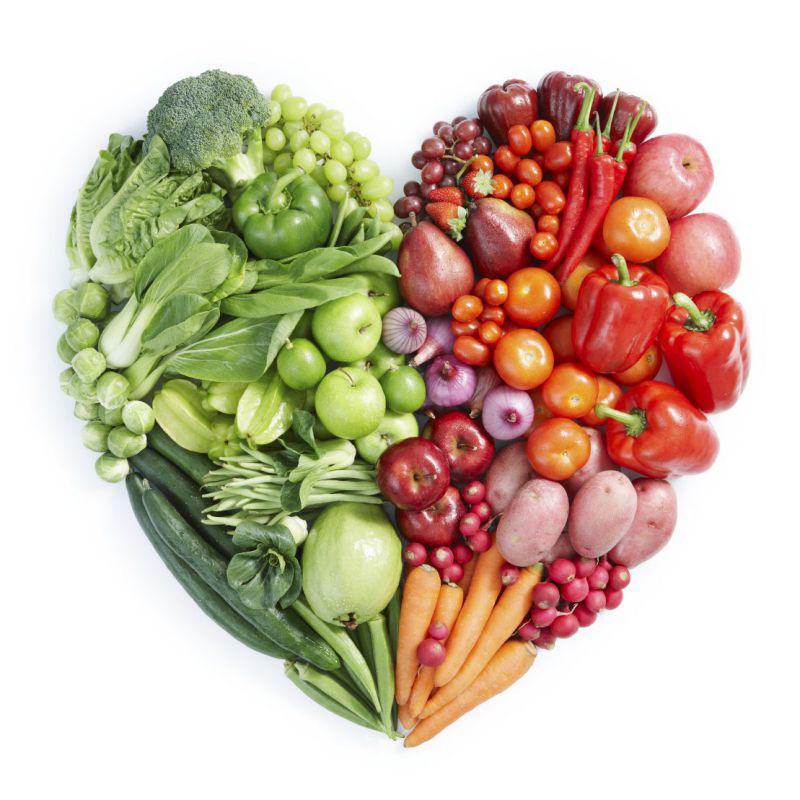
A recent study which looked at more than 65 000 randomly selected people for the Health Survey for England has shown that the protective effects on health of eating fruit and vegetables rise the more portions you eat. At 7 or more portions a day your risk factors for death from any cause drop by 33%.
There have been calls from people for the U.K. Government to change its current message of 5-a-day. However, 5-a-day has been widely understood and promoted and is recommended as a minimum. Not something that the researchers actually disagree with.
The lead investigator on the study Dr Oyinlola Oyebode spoke to BBC News and said: "The clear message here is that the more fruit and vegetables you eat, the less likely you are to die - at any age.” She said the size of the effect was "staggering", but added that eating a few portions a day was still better than nothing.
The researchers also looked at the type of fruit and vegetable consumption and found that intake of vegetables, salad, fresh fruit and dried fruit were associated with decreased risk of death from any cause. However, consumption of frozen or canned fruit was associated with an increased risk of death. Consuming vegetables appeared to be significantly better than consuming similar quantities of fruit.
A maximum of one portion of pulses, one of fruit juice or a smoothie and one of dried fruit contributed to total daily portions of fruit and vegetables.
Try fresh organic fruit or organic vegetables to start benefiting from a Real Food diet. Try our extensive dried fruit range for a sweet and healthy treat, or tinned vegetables for the store cupboard and have them on hand when you need them. Our pasta sauces are healthy, easy and great for getting some hidden goodness into food for kids (and fussy adults!) Our pulses and grains can be found here, excellent for adding fibre to your diet (and tasty too!)
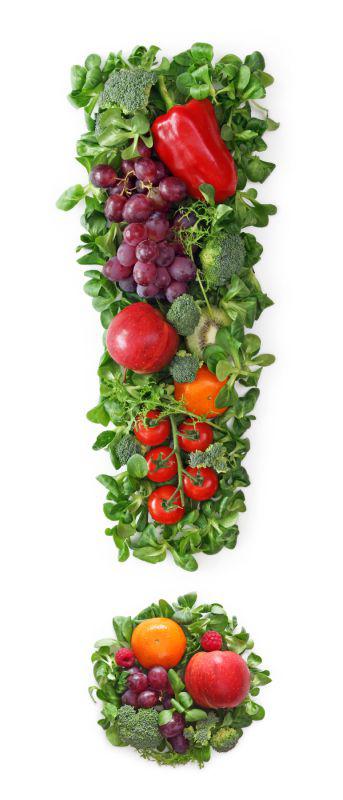 What do other experts say about your diet?
What do other experts say about your diet?
Overall the message is simple. Eat food, mainly plants, not too much. As Professor David Katz phrases it in a recent Times article " the case that we should eat true food, mostly plants, is all but incontrovertible." Ideally that's fruit, vegetables, wholegrains, nuts and seeds. Professor Katz's recent study (with colleague Stephanie Meller) examined a wide range of diets and concluded that the ones that worked all had 'true food' in common. That included Raw Food, caveman and and alkaline diets, which all have plant based and wholegrain rich plans.
They looked at fasting and found it could be helpful as a sort of 'reboot' to your system and is in line with what our ancestors would have done (although not through choice, simply through food shortages!) However, it can also mean that people binge on junk food when the fasting is over. He concluded 'it's not terribly helpful for most people'.
What is helpful is eating like the animals we are. That means eating food as close to its natural state as possible, avoiding processed products and enjoying your food. Like any other animal does! They also advocate organic, partly as it's what we traditionally evolved to eat and partly because 'we eat, what they eat', which as anyone who has seen modern meat rearing methods is NOT plants very often! A Real Food diet is one based on eating 'true foods'. That's fresh, organic ingredients, packaged food without excess ingredients and foods with a good nutritional profile.
Raw Food and Vegan Diets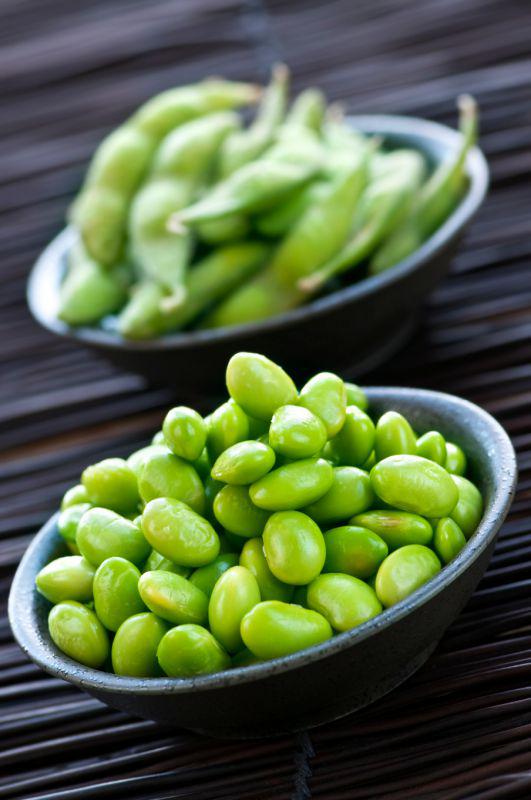
Broadly speaking they are healthy when they are based mainly on fruit, vegetables, wholegrains, legumes, nuts and seeds. Drinking nothing but smoothies, however raw and vegan they are won't keep you healthy as you need the fibre and full range of vitamins and minerals to keep you going.
Vegans and most Raw Foodists will need to top up their vitamin B12 levels to make sure their nervous system functions properly. If avoiding meat, fish or dairy products, simply make sure you're eating nutritional yeast, fortified foods (try soya milk with added vitamins) or take a supplement to ensure optimum health.
Apart from that though, it's a really healthy diet to follow. You are far more likely to be getting 7-10 portions of fruit and veg a day in a vegan or raw food diet and the range of vegan foods is getting better every day. Visit our Raw Food shop for interesting foods. Try our shop with a vegan filter and marvel at the range. Or try our recipes section to inspire you. One of the quickest ways to a healthier diet is to try going vegan for a few days a week, or maybe swap to vegan breakfasts or raw food pack lunches. It often inspires people to get a little more creative with their recipes and meal planning, it also helps to retrain your tastebuds so you crave processed rubbish less and fresh goodness more.
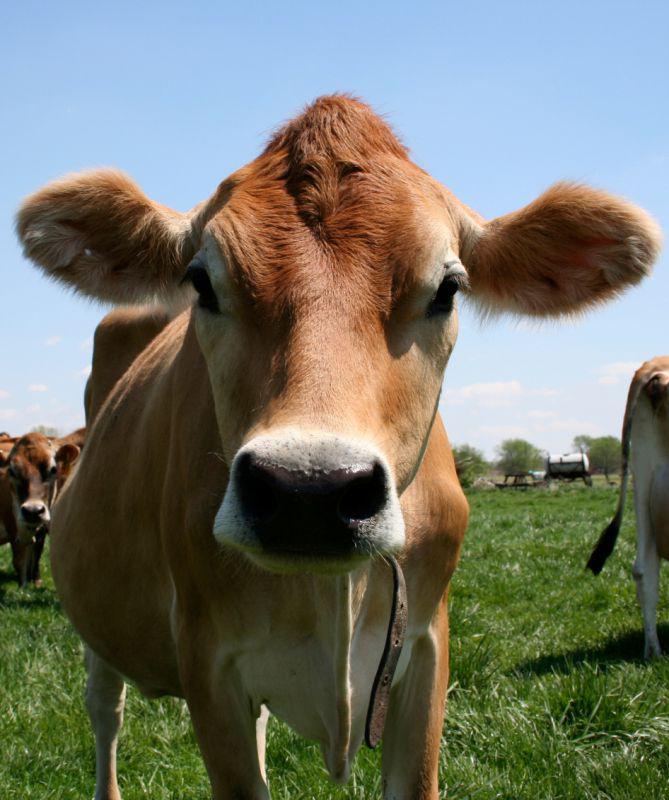 Free-From Diets
Free-From Diets
We have a huge range of Free-From foods at Real Foods. For a start we're pretty much wholly vegetarian (you can get pet food that contains meat and a few fish oil supplements, but everything else we sell is vegetarian). That means they are free from 3 of the bigger allergens; crustaceans, molluscs and fish. We also focus on organic and healthy (yup, it's those wholegrains and raw foods again!)
People following a gluten free diet can use our filter (on the left hand side of the shop page) to only show them those foods. You can do the same with vegan and Fairtrade options. There are 2 types of gluten free food, that which is tested to under 20 parts per million and food that is 'naturally' gluten free or 'no gluten containing ingredients'. If you are a coeliac or gluten allergic (or shopping for one) you need the ones marked and tested 'Gluten Free', people with intolerances are usually fine with no gluten containing ingredients. These are also suitable if you are trying to reduce gluten in your diet but are not allergic or coping with coeliac disease.
There are 14 allergens that must be displayed if they are present in food. Gluten, crustaceans, molluscs, eggs, fish, peanuts, nuts, soybeans, milk, celery, mustard, sesame, lupin and sulphur dioxide at levels above 10mg/kg, or 10 mg/litre, expressed as SO2.
We try to pass on as much information as possible about the ingredients and allergen risks, however manufacturers do change their recipes and production processes so always check the packaging to make sure.
The Real Food diet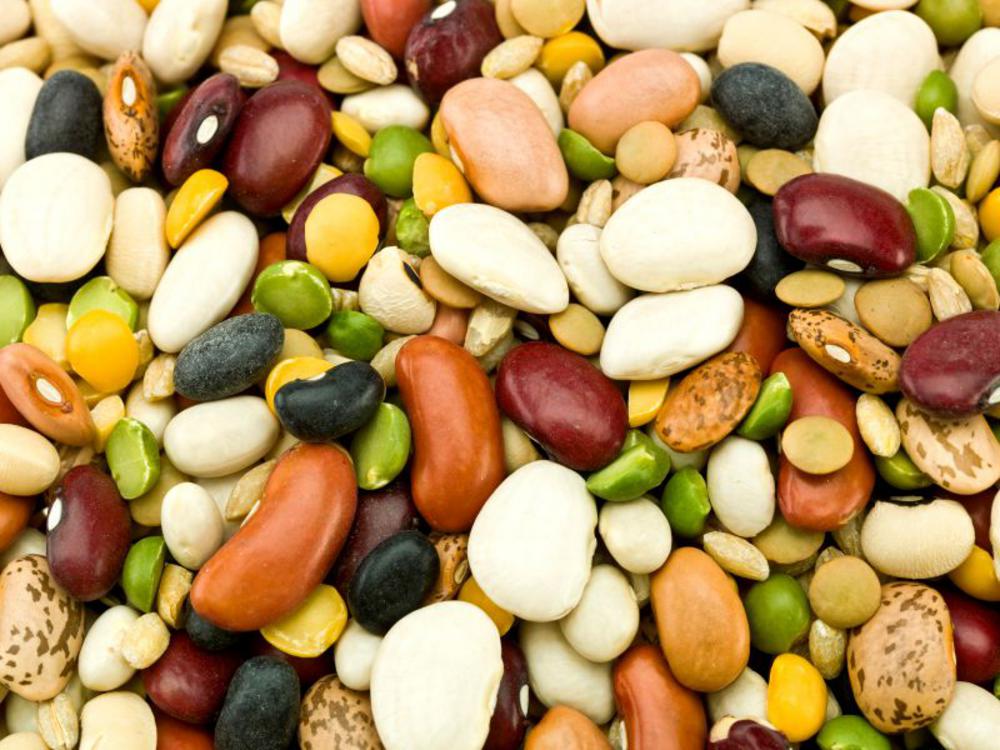
Here at Real Foods we reckon the best diet is… the Real Food diet! Eat the good stuff, preferably organic and really enjoy your food! We like raw, wholefoods, fresh fruit and vegetables and plenty of plants. However, we are aware that the best diet for you is the one that works for you; it’s no good us saying you really ought to go on the Paleo diet and eat like a caveman if you’re a vegan for ethical reasons, nor would we advise breastfeeding mothers to suddenly start restricting calories 2 days a week! However, trying new recipes, different ways of combining your meals and exciting new foods will always enliven your diet.
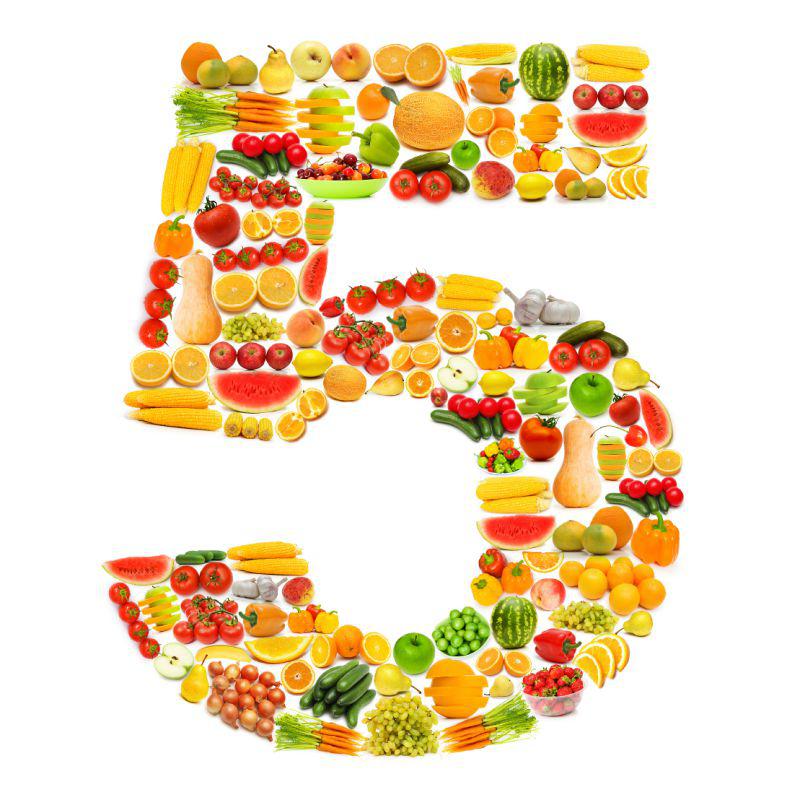 Our top 5 suggestions for a healthy diet
Our top 5 suggestions for a healthy diet
-
Get your greens - They help to lower cholesterol, reduce your chances of disease and taste great! As a general rule the darker and brighter the colour of the vegetable the more vitamins, minerals and fibre they usually contain. For example, spinach contains more nutrients than lettuce.
-
Reduce salt - Your risks of heart disease, strokes and high blood pressure all rise the more salt you eat. Try these low salt alternatives.
-
Avoid white foods, eat wholegrains instead - Having the odd portion of white rice, pasta or bread is fine, but don't make them everyday staples. There are delicious, nutritious alternatives that provide your body with all the nutrients it needs. Leaving you feeling fuller from more fibre and less prone to blood sugar crashes (not to mention type II diabetes.) Try seeded breads, spelt pasta or GABA rice to start making small changes.
-
Cut down on sugar - Try a couple of squares of dark chocolate (rich in antioxidants), sugar alternatives and fruits to get a bit of sweetness and avoid tooth decay and weight issues.
-
Buy organic - If you want to get the most out of your food, you want the best food. It's that simple. Richer in nutrients and free from chemicals, organic food is far closer to the food our ancestors would have eaten.
What is the 5:2 diet?
The 5:2 Diet was developed by Dr Michael Mosley and Mimi Spencer. It was popularised on a BBC2 Horizon show ‘Eat Fast and live Longer’ in 2012. It is based on intermittent fasting, eating normally for 5 days and fasting for 2 days. The 2 Day Diet is a book recently published which also advocates restricting calories for 2 days a week. Produced by dieticians it is considered a safe way to introduce calorie restriction.
Breakdown of the 5:2 diet.
-
You eat a quarter of your daily calorie intake on 2 days of the week. That’s 500 calories for the average women and 600 for a man.
-
The days you fast do not have to be consecutive.
-
The fast day is actually more like 36 hours not 24 hours, you fast from dinner/supper of one evening until breakfast 2 days later.
-
You can either have the calories spread out in small snacks or in one dinner, the calorie count is the thing.
-
You are recommended to stay hydrated, eat protein and vegetables in their rawest state on your fast days and stop if you feel faint or unwell (wee bit peckish is not unwell!)
-
Some people find there is a spiritual element to restricting calories and fasting.
What do its supporters say about the 5:2 diet?
A lot of people find it far easier to stick to a diet 2 days a week and eat ‘normally’ for 5. Since it is achievable they are far more likely to stick to the diet and successfully control your weight. There are arguments that the 5:2 diet can improve your lifespan, brain function and potentially protect against conditions such as Alzheimer’s and dementia. However, evidence is fairly limited in comparison to other diet’s although a 2012 study did suggest may lower the risk of certain cancers.
What do its detractors say about the 5:2 diet?
Skipping meals can make you feel irritable or dizzy, there have been reports of headaches and a lack of concentration. People may find they are sleepy in the daytime. This will obviously impact on your work or exercise plans. Also eating ‘normally’ on the other days is not unremitting feasting! You are expected to eat healthily and sensibly, it’s just that you can have that slice of cake if you want…. You still don’t get to eat the whole cake!
Who should NOT follow the 5:2 diet?
-
Children
-
People who have had, or are prone to, eating disorders or diabetes
-
Pregnant or breastfeeding mothers
-
If you are unwell or feverish
-
If you are recovering from surgery
Consult your doctor before trying this diet if you are taking prescribed medications, you should always do this if you are on a regular medication schedules as it can affect some drugs. This is particularly important if you are taking anti-coagulants as intermittent fasting may increase your INR.
What is the Paleo diet?
This is a diet supposedly based on what our hunter-gatherer ancestors ate during the Paleolithic era. That’s the caveman times as we turned into Homo Sapiens, started agriculture and started looking like we do today. The idea of eating ‘what we’re designed to eat’ has been around since the 1960s but was popularised in 2001 by Loren Cordain’s ‘The Paleo Diet’. It means eating meat, fish, vegetables, fruits, seeds, fungi and nuts and avoiding grains (along with anything else that prehistoric man wouldn’t have recognised) so that’s a no to sugar, dairy, pulses and all processed foods.
Breakdown of the Paleo diet
-
It’s a high protein, high in fresh foods diet. The diet emphasises meat and denies pulses though so it’s very difficult to follow as a vegan or vegetarian (or just if you’re partial to a chickpea curry!)
-
You’re avoiding anything refined, not just 21st century foods, but anything refined in the last 12 000 years!
-
No dairy, no grains, no sugar, no processed foods
-
It’s a low salt diet
What do its supporters say about the Paleo diet?
The diet encourages you to eat far more raw and unprocessed foods. Many people are trying an 80:20 approach following the Paleo diet for 80% of the time and allowing themselves grains and so forth 20% of the time. Advocates say the paleo diet is a long-term healthy eating plan that can help you lose weight and reduce your risk of diabetes, heart disease, cancer and other health problems. Studies have shown improved health following the diet and fewer incidences of diabetes, dementia and heat disease.
What do its detractors say about the Paleo diet?
For a start, if you want to imitate Paleolithic man you’d do very well to mimic his physical activity! In addition, people lived to around 20 years old then… Excluding key food groups of grains, legumes and dairy can have nutritional consequences and you may require additional supplementation. It can be very difficult to find suitable foods when eating out.
Who should NOT do the Paleo diet
-
Vegetarians and vegans, it’s impossible to follow without eating meat, fish and eggs*
-
Anyone without planning skills. The diet is highly restrictive and eliminates many foods. You will also need to monitor calcium levels as there is no dairy in this diet.
-
Rationalists: The Paleo argument rests on the fact that we have been around for 200,000 years but only farming for 10,000. However the genome for digesting milk developed 7500 years ago and most northern Europeans have it. This is rapid evolution compared to the Paleo theory.
Many people do find benefits, particularly from following the plan 80% of the time and having healthy wholegrains in the other 20%. Anything reducing your intake of processed foods and increasing your wholefoods is good.
*There are vegetarian Paleo diet followers. They eat mainly wholefoods and cut out sugar, refined carbs and industrial oils. As they don't eat meat, protein must be found from alternate sources. Eggs and nuts are endorsed by the Paleo diet, but most vegetarians will also need to eat dairy, beans and tofu to maintain protein levels. If you don't eat eggs or dairy you will need to supplement your Vitamin B12 levels and consider supplementing your omega-3 levels also. A multi-vitamin is also a good idea.
What is the Dukan diet?
Developed in the 1970s by Dr Pierre Dukan it gained popularity in 2000 when he published his research. It is a low-carb, high-protein diet that has 4 phases named attack, cruise, consolidation and stabilisation.
Breakdown of the Dukan diet
Phase 1 (attack) for 5 days –lean protein (chicken, eggs, fish, fat-free dairy) with the only carbs supplied by daily oat bran.
Phase 2 (cruise) – protein rich foods and the re-introduction of fresh vegetables.
Phase 3 (consolidation) – re-introduction of fruit, bread, cheese and starchy foods.
Phase 4 (stabilisation) - protein only day every week, regular oat bran and daily exercise.
What do its supporters say about the Dukan diet?
You can lose weight quickly which helps to keep a dieter motivated. It’s easy to follow and there’s no calorie counting, it’s just prescriptive on the types of foods. It's good if you like oatbran!
What do its detractors say about the Dukan diet?
The British Dietetic Association (BDA) advises avoiding it as there is ‘absolutely no science behind this at all’. Avoiding entire food groups is problematic, you may suffer from a lack of energy, bad breath (particularly in the early phases) and constipation. It may have a yo-yo effect on your weight, more dieters put the weight back on after a year than other long term lifestyle changing diets.
Who should NOT do the Dukan diet
-
Anyone with diabetes related conditions including high cholesterol, kidney damage or gout.
-
People with diabetes should consult their doctor (who will probably advise against it).
-
Certain vitamins and minerals may be reduced - pregnant and breastfeeding mothers should take extreme care.
-
People who have had, or are prone to, eating disorders
The Macrobiotic Diet
What is the Macrobiotic diet?
Macrobiotics advocates wholegrains, beans and locally grown vegetables as the primary sources of food. The diet also includes nutritious soyfoods (traditionally used in Asia for hundreds of years) and mineral-rich foods from the sea – such as sea vegetables or certain types of fish. This is a seasonal, locally sourced diet at its roots, i.e. your diet in France would be different from the Japanese macrobiotic diet as you’re eating in harmony with your local environment and seasons and eating traditional foods. It is an old diet – the term macrobiotics was coined by Hippocrates – the translation is roughly ‘large’ or ‘great’ (macro) and ‘life’ (bios) and used to refer to a simple blanaced diet that promoted health. It was revived in the late 18th century by Christopher W. Hufeland, a century later it was revived again this time by Jpanese educators Ishizuka and Sakurazawa (also known as Ohsawa).
Breakdown of the Macrobiotic diet
-
50-60% wholegrains and whole-grain products
-
20-30% vegetables (local and organic if possible)
-
5-10% beans and sea vegetables
-
5-10% soups
-
5% condiments and supplementary foods (beverages, fish and desserts)
Unrefined and unprocessed foods are key to this diet. Complex slow-release carbohydrates such as brown rice are encouraged.
On average – 12% protein, 15% fat, 73% complex carbohydrates is the diet breakdown.
What do its supporters say about the Macrobiotic diet?
It's a healthy diet (it's broadly in line with recommendations for fat, carbohydrate and protein levels). Low in protein but still in the recommended range and higher in carbohydrate (the complex ones!) The approach helps you to live in harmony with your environment and nvolved exercise and mindfulness that can help you live the 'good' life. There are good studies to show it can be beneficial in reducing your risk for a variety of health conditions (as any healthy diet does).
What do its detractors say about the Macrobiotic diet?
Some people claim that the macrobiotic diet can cure or reduce cancers. There is no solid body of evidence to back this up. Researchers funded by the National Center for Complementary and Alternative Medicine in America are doing a study to test whether a macrobiotic diet can play a part in preventing cancer.
A strict Macrobiotic diet may not include any dairy or animal products, this can have an effect on vitamin and mineral levels and not supply enough nutrition.
It’s costly, some organic foods and sea vegetables can be expensive. Consulting a Macrobiotic practitioner can also cost quite a lot.
Who should NOT do the Macrobiotic diet
-
Anyone addicted to their microwave or convenience foods. This diet is about eating foods sourced locally and cooked gently.
-
Anyone who is Vitamin B12 or Vitamin D deficient should not follow a strict version of this diet
What is the Chilli diet?
The basis of the chilli diet is that researchers in Canada discovered that capsaicin (the chemical in chillies that gives it such pungency) boosts your body’s ability to turn fat into heat. Instead of storing calories, they burn off in a process called diet-induced thermogenesis. In addition, capsaicin helps burn off fat rather than carbohydrates.
Breakdown of the Chilli diet
-
Chilli helps to reduce your appetite
-
Chilli helps convince your body that a meal contains more fat than it actually does.
-
Canadian researchers have discovered that spicing up a fatty meal with chilli powder significantly increases levels of diet-induced thermogenesis.
-
Ginger, mustard, green tea, coconut oil, coffee and cola also boost thermogenesis.
What do its supporters say about the Chilli diet?
Adding chilli to low-fat meals is a good way to boost your body’s perception that you are fulfilling its craving for oils and fats. Scientists have found that diet-induced thermogenesis usually uses up carbohydrates, with various studies showing that we produce more heat after a high-carbohydrate meal , e.g. potatoes or pasta - than after a meal of fatty food. Chilli helps burn up the fat.
What do its detractors say about the Chilli diet?
Dr Wendy Doyle of the British Dietetic Association is cautious 'This research is very interesting, but for effective weight loss, one has to take a lot of other factors into consideration. There's no point eating a lot of chilli if you're also eating a high-fat diet and not getting any exercise, because you still won't lose weight.'
Chillies might help burn some of the excess calories from a high fat diet however, nutritionally; a lower fat, higher carbohydrate diet is still the best option, regardless of what our tastebuds tell us.
Who should NOT do the diet
Anyone who hates Chillies! (Maybe try ginger, mustard, green tea, coconut oil and coffee instead).
The Eczema Diet
What is the Eczema diet?
Nutritionist Karen Fisher brought out a book ‘The Eczema Diet’. Certain foods can trigger a reaction and worsen the symptoms. Knowing what food avoid can help you with fighting the condition – and knowing what to eat can help make attacks less severe. Eczema ‘trigger’ foods and ones to avoid are also covered in Udo Erasmus’s Fats that Heal, Fats that Kill book.
Breakdown of the Eczema diet
-
Remove strongly acidifying foods such as meat and processed foods.
-
Avoid dairy, wheat and gluten.
-
Strictly avoid heavily processed foods containing food dyes, sulphites, MSG and sodium benzoate.
-
Add inflammation-reducing foods such as bananas, potatoes, green onions and sprouts to your diet.
-
Probiotics have been proven to help (although which ones exactly varies according to the studies)
-
Essential Fatty Acids have also been shown to help reduce symptoms
What do its supporters say about the Eczema Diet?
That it helps reduce itching, inflammation and worsening symptoms of eczema. It’s also a alkali rich diet which has innumerable health benefits.
What do its detractors say about the Eczema Diet?
That food may not be the culprit for flare-ups of eczema; we are exposed to many potential triggers in a given day. Whilst it may seem to the patient that certain foods are making eczema symptoms worse, it is entirely possibly that stress or environmental impacts are actually the culprit.
Who should NOT do the Eczema diet
People without eczema! It’s a little unnecessary
People who react badly to restrictive diets